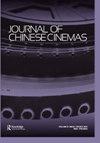No longer bond’s girl: Historical displacements of the top female spy in 1960s taiyupian
IF 0.4
3区 艺术学
0 FILM, RADIO, TELEVISION
引用次数: 1
Abstract
Abstract When the 1960s Bond craze reached Taiwan, the taiyupian produced a hugely popular new archetype: the female 007. Although the films in this sub-genre evoked Bond’s code name of 007, Bond gadgets, and high-stakes espionage, they reversed the gender of the top spy. This was dramatized in the narrative through the hidden identity of 007, who is often a glamorous female figure embedded in enemy ranks and swoops in in masked attire to save her team of agents. Meanwhile, the top male spy remains in the dark and believes it is his role to take responsibility for the team. Often 007’s lover, he is ultimately proved incompetent and dependent upon her prowess as top spy; his role, too, is a reversal of gender and agency. This paper explores the cinematic history and context for this gender irony. With close readings of 1964’s Female Agent No.7 and The Best Secret Agent, I argue that the female action lead had a radically different meaning in taiyupian as compared to British and American cinemas, or even other Sinophone and East Asian cinemas, due to its resonance with a specifically Taiwanese narrative of historical redemption. Furthermore, the reversal of 007’s gender points to the taiyupian’s sense of irony regarding its marginal status among other cinemas, and its embrace of the element of surprise inherent in the outsider’s role.不再是邦德的女孩:20世纪60年代太平岛顶级女间谍的历史置换
摘要当20世纪60年代的邦德热蔓延到台湾时,台湾电影产生了一个广受欢迎的新原型:女007。尽管这一子类型的电影唤起了邦德的代号007、邦德的小工具和高风险间谍活动,但它们颠倒了顶级间谍的性别。这在叙事中通过007的隐藏身份被戏剧化了,她经常是一个迷人的女性人物,嵌入敌人的队伍中,穿着蒙面服装冲过来救她的特工团队。与此同时,这位顶级男性间谍仍然蒙在鼓里,他认为自己的职责是为团队负责。作为007的情人,他最终被证明是无能的,并依赖于她作为顶级间谍的能力;他的角色也是性别和能动性的颠倒。本文探讨了这种性别讽刺的电影历史和背景。仔细阅读1964年的《七号特工》和《最佳特工》,我认为,与英国和美国影院,甚至其他华文和东亚影院相比,女性动作片在台湾有着截然不同的意义,因为它与台湾特有的历史救赎叙事产生了共鸣。此外,007性别的反转也表明了《太平篇》对其在其他影院中的边缘地位的讽刺感,以及它对局外人角色中固有的惊喜元素的拥抱。
本文章由计算机程序翻译,如有差异,请以英文原文为准。
求助全文
约1分钟内获得全文
求助全文

 求助内容:
求助内容: 应助结果提醒方式:
应助结果提醒方式:


